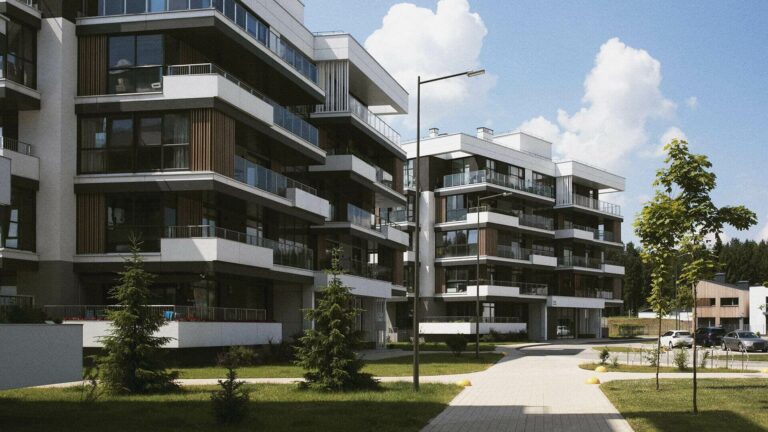A comprehensive guide to the rental process in Abu Dhabi
The shimmering skyline of Abu Dhabi, adorned with its modern marvels and cultural richness, beckons individuals from across the globe. Understanding the nuances of the rental process is essential for those looking to reside in this dynamic Emirati city. From selecting the right neighborhood to signing the lease, here’s a comprehensive guide to navigating the rental landscape in Abu Dhabi.

Understanding Abu Dhabi's Neighborhoods
Abu Dhabi has various neighborhoods, each with its unique charm and amenities. Al Reem Island offers waterfront living, while Khalidiya exudes a cosmopolitan vibe. The family-centric Khalifa City and the luxurious Saadiyat Island cater to different lifestyles. Understanding the pulse of these areas helps align your preferences with the ideal neighborhood.
Rental Laws and Regulations
Before delving into the rental process, it’s imperative to comprehend the legalities governing Abu Dhabi’s rental landscape. The regulatory framework ensures a fair and transparent environment for tenants and owners. The Abu Dhabi Department of Municipalities and Transport (DMT) oversees the rental market, setting guidelines for tenancy contracts, rental increases, and dispute resolutions.
Budgeting and Affordability
Establishing a realistic budget forms the cornerstone of your rental journey. Factors such as location, property type, and amenities influence rental prices. While Abu Dhabi offers a spectrum of housing options, from lavish apartments to cozy studios, ensuring that your budget aligns with your desired lifestyle aids in narrowing down choices.
Finding the Right Property
Engaging with reputable real estate agents or utilizing online platforms dedicated to property listings simplifies the quest for the perfect home. Define your criteria—number of bedrooms, amenities, proximity to schools or workplaces—and explore various options before shortlisting properties for viewings.
Viewing and Inspecting Properties
Attending property viewings provides firsthand insights into the ambiance and suitability of a potential home. During these visits, scrutinize the property for any signs of wear and tear, check the functionality of utilities, and inquire about maintenance procedures. Clarify any doubts regarding included furnishings or appliances to avoid discrepancies later.
Negotiating Lease Terms
Once you’ve found the ideal property, negotiating lease terms comes into play. Pay attention to clauses related to rental increases, maintenance responsibilities, and payment schedules. Seek clarity on utility payments, service charges, and potential penalties to ensure a complete understanding of the lease agreement.
Understanding Tenancy Contracts
The tenancy contract, a legally binding document, delineates the rights and obligations of both tenant and landlord. Read this document carefully, ensuring that all agreed terms are accurately reflected. Pay attention to the length of the rental, the amount of the rent, the details of the security deposit, and the exit clauses.
Paying Security Deposits and Rent
Upon finalizing the tenancy contract, payment of the security deposit and initial rent becomes due. The security deposit, usually equivalent to one or two months’ rent, safeguards the landlord against damages or non-payment. Prompt payment of rent is crucial to establishing a harmonious relationship with the landlord.
Moving In and Inspection
Before moving in, conduct a thorough inspection of the property with the owner or their representative. Document any pre-existing damages or discrepancies to avoid disputes during the lease term. Familiarize yourself with emergency procedures, utility connections, and community regulations to seamlessly integrate into your new home.
Navigating Tenant-Landlord Relationships
Maintaining open communication and adhering to the terms of the tenancy contract fosters a healthy tenant-landlord relationship. Promptly report any maintenance issues and seek approvals for modifications or repairs. Understanding rights and responsibilities creates a conducive living environment for both parties.
Handling Lease Renewals and Exit Strategies
Approaching the end of the tenancy period prompts decisions regarding lease renewals or moving out. Initiating discussions regarding renewal terms well in advance ensures a smooth transition. If opting to vacate, adhere to the notice period stipulated in the contract and conduct a comprehensive handover of the property.
Resolving Disputes Amicably
In the event of disagreements or disputes, endeavor to resolve matters amicably through discussions or mediation. Familiarize yourself with the procedures outlined by the Abu Dhabi Judicial Department for tenancy dispute resolutions, seeking legal counsel if necessary.
Final Thoughts
Embarking on the rental journey in Abu Dhabi demands meticulous planning, thorough research, and a keen understanding of legalities. By navigating the process with diligence and caution, securing your ideal residence in this dynamic city becomes an achievable reality.
Renting a property in Abu Dhabi is not just about finding a place to live; it’s about embracing a lifestyle and immersing oneself in the rich tapestry of culture and modernity that the city offers.

